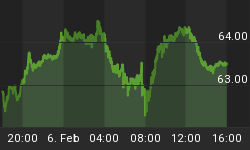As the Federal bailout bonanza prepares to spread beyond the mortgage and financial sectors to fill Detroit's depleted coffers, few economic or policy analysts have spared a thought for the destitution of the U.S. government itself. Put simply, our government doesn't have enough spare cash to bailout a lemonade stand let alone a bloated and failing industry that is losing tens of billions of dollars per month. Washington can only offer funds that it has borrowed from abroad or printed. Unfortunately, the nation is in the grips of a delusion that money derived from these sources has the power to heal. But history has clearly shown that borrowed or printed money only has the power to destroy.
The argument that energizes the pro-Detroit camp is that the government should extend the same courtesy to the rank and file auto workers that it lavished upon the fat cats of Wall Street. While two wrongs certainly do not make a right, the fact remains that the Wall Street firms are still floundering despite the bailouts. What's worse, the money spent was either printed or borrowed from abroad. Both options are destructive to America.
When it comes to bailouts, the real discussions are not centered in Washington but rather in Beijing, Tokyo, and Riyadh. With no money of our own, our ability to bailout our own citizens is completely dependent on the world's willingness to foot the bill. While I am sure that Bush and Paulson are doing their best to convince the world that open ended financing of the United States is in the global interest, my guess is that, unlike Congress, our foreign creditors will see through the self-serving nature of our plea.
Like any bailout, our foreign creditors should consider the moral hazard of rewarding bad behavior, and the old investment adage of not throwing good money after bad. By continuing to "lend" us money, the world is merely delaying the necessary rebalancing of our upside down economy. By continuing to subsidize our reckless and outsized consumption, the world merely delays the inevitable re-balancing and exacerbates the underlying problem at the root of the current global financial crisis.
If Washington bails out General Motors, the funds will never be recovered. GM will simply burn through the bailout money and then be back for more. Talk of designing a new fleet of "green" cars that will pave the way to profitability by spurring a new buying spree is simply delusional. Given the staggering "legacy" costs of health care and pensions for millions of current and former workers, Detroit cannot produce cars profitably. Unless these costs are seriously brought down, and there is very little chance that they will be, Detroit will remain a bottomless money pit.
Similarly any money that the world lends to America to finance more consumption will never be repaid. We will simply blow through it, and be back, hat in hand, begging for more. As we painfully learned in the housing bust, lending people money that they cannot pay back makes no sense. This applies equally to foreign central banks lending to America as it does to commercial banks lending to homeowners.
So for the same reasons that Washington should not bail out General Motors, the world should not bailout America. Like GM, our economy is in desperate need of a restructuring. Spending must be replaced with savings, and consumption with production. The service sector must shrink and manufacturing must expand to fill the void. The dollar must fall, wages in America must be brought down to a competitive level, and hopefully government spending and burdensome regulation can be reduced.
This transformation will not be fun, but it is necessary. Our standard of living must decline to reflect years of reckless consumption and the disintegration of our industrial base. Only by swallowing this tough medicine now will our sick economy ever recover. By accepting a lower standard of living today, we will eventually be rewarded with a higher one tomorrow.
For a more in depth analysis of our financial problems and the inherent dangers they pose for the U.S. economy and U.S. dollar denominated investments, read my just released book "The Little Book of Bull Moves in Bear Markets." Click here to order your copy now.
For an updated look at my investment strategy order a copy of my new book "Crash Proof: How to Profit from the Coming Economic Collapse." Click here to order a copy today.
More importantly, don't wait for reality to set in. Protect your wealth and preserve your purchasing power before it's too late. Discover the best way to buy gold at www.goldyoucanfold.com. Download my free Special Report, "The Powerful Case for Investing in Foreign Securities" at www.researchreportone.com. Subscribe to my free, on-line investment newsletter, "The Global Investor" at http://www.europac.net/newsletter/newsletter.asp.















